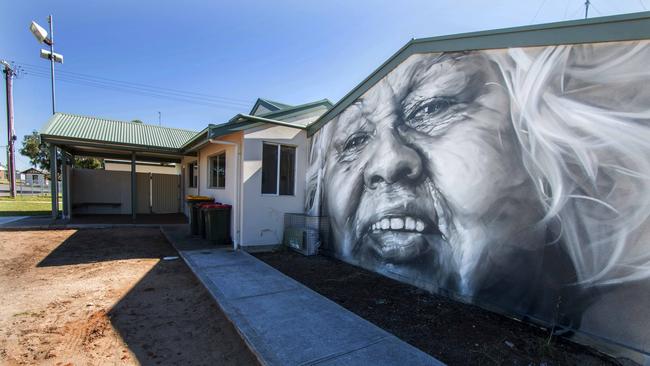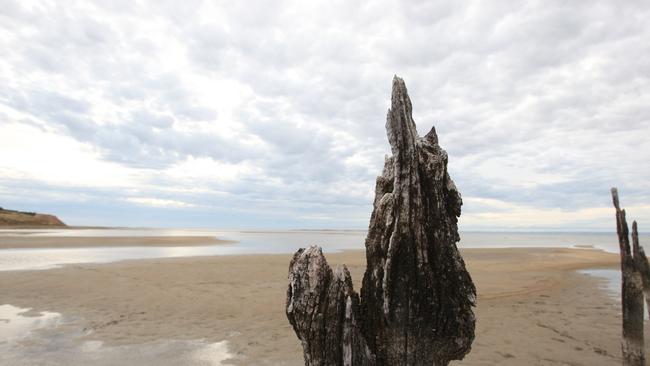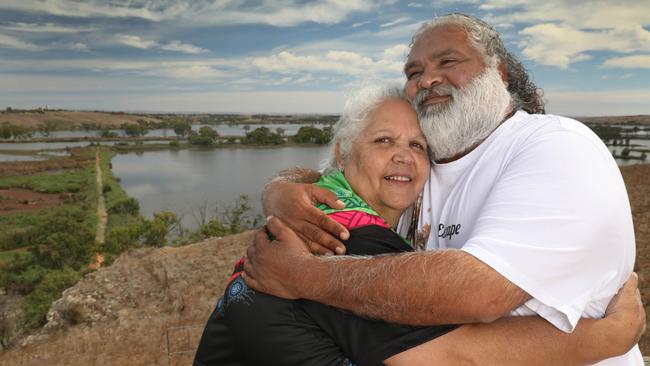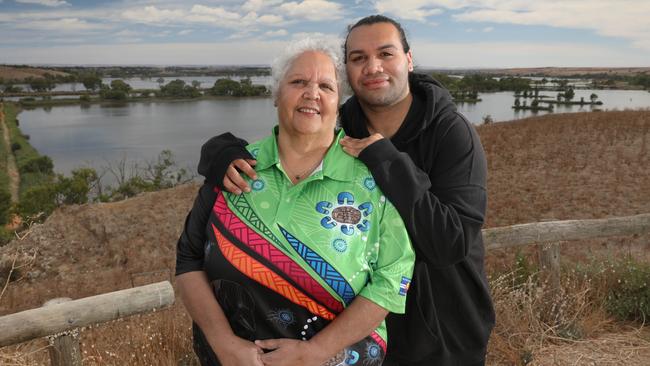The Voice is ‘my little ray of hope’, says Aunty Eunice Aston
Aunty Eunice Aston lived through the times when people like her were exiles in their own homeland, and how that still matters now.
SA News
Don't miss out on the headlines from SA News. Followed categories will be added to My News.
Ngarrindjeri elder Aunty Eunice Aston knows how important is is to have your voice heard, as she remembers living through the harsh government policies forced upon Indigenous people.
The first 13 years of her life were spent living on the banks of the Coorong in “humpies” and any other types of shelter she and her family could find.
“I remember living in a tent, I remember living in man-made humpies where it was just leaves and those kinds of shelters, and also have memories of sleeping in ruins along the Coorong,” she told the Sunday Mail ahead of the First Nations Voice Bill being passed.
Born in 1959 in Point McLeay Mission, now known as Raukkan, she was exiled from her birthplace as an infant, unable to legally return until she was about 15-years-old.

At the time, Aboriginal people who received exemption certificates were promised access to the benefits of Australian citizenship that they were otherwise denied.
This included access to education, health services, housing and employment, but to apply for and hold an exemption, individuals were required to relinquish their language, identity and ties to kin.
Aunty Eunice’s family left Raukkan due to her father working as a shearer and on the railways, for which he received an exemption to leave and return as he pleased.
This, however, was not afforded to the rest of her family.
“My mom and dad told me that once I was taken off the mission and taken care of on the Coorong and looked after, that I wasn‘t allowed back on the mission,” she said.
“We had to sit outside the gate (of Raukkan) until we were allowed to go back on … so right through the 60s and into the early 70’s.”
For thirteen years, she grew up on the fringes of Meningie and Raukkan, which she said were “harsh” living conditions.

Aunty Eunice believes that her start in life deprived the future generations of her family many opportunities, but said she felt “lucky” because she still had her culture to share with them.
When she was finally allowed to legally return to Raukkan in 1974, she said she felt disconnected from her birthplace and the other families that lived there.
“Although I met some of my family, it was like I didn't belong and I was more at home on the Coorong than in the place where I was born,” she said.
In her time growing up, she experienced all of what Australia had to offer Indigenous people at the time, which consisted of racism and forced assimilation.
Under protection and assimilation policies, Aboriginal and Torres Strait Islander people were treated harshly, which has had an intergenerational effect that continues to this day.
Aunty Eunice says the effect has stunted the growth of Indigenous people which she hopes a Voice to parliament can start to rectify.
“Sometimes I get really bewildered by the state that we‘re in and then I see a little ray of hope with the Voice … that’s a ray of hope for me,” she said.

Her eldest son, Gordon Rigney Snr also experienced the racism and discrimination that came with being Aboriginal, and sits on the fence about the Voice as he is not sure if it will bring about real change for his people.
“Growing up, we could see the difference with us as blackfullas and them as whitefullas and you could just tell and feel that we were different … and looked at differently,” he said.
“At first I was a bit wary about the Voice, I’m still a bit wary.
“We should be recognised as the Traditional Owners of this country … we need that, we need a Treaty that we can all make, move on, work together and make this country one … not divided.”
Gordon Snr says he is staying “open-minded” about the SA Voice, as it “could be a good thing, or it could be a bad thing”.
However, his son, Gordon Jr believes it will have a significantly positive effect on Indigenous people in SA.
Something that strongly shaped his stance is the treatment that his grandmother, Aunty Eunice was subjected to, which she has told him many stories about.
“I think the Voice to Parliament is something that needs to happen … it should have happened a long time ago,” he said.

“There’s definitely intergenerational trauma from what’s happened.
“I feel like we never really got the knowledge that all the older people have because there has been a disconnect.
“We’re living in a westernised world and we‘re having to survive in that world.”
The harsh realities of Aunty Eunice’s childhood have rubbed off on Gordon jr and his father and helped shape who they are today.
Gordon jr says the treatment of his grandmother and all Indigenous people in Australia at the hands of the government has left a “gap” and deprived Aboriginal families from achieving equal status.
“We (Indigenous people) didn’t have freedom, we didn’t have opportunity, we didn’t have anything for my grandmother and her grandmother from their time growing up,” he said.
“We weren't able to live our lives, practise our culture … its had a tremendous effect.”
More Coverage
Originally published as The Voice is ‘my little ray of hope’, says Aunty Eunice Aston





